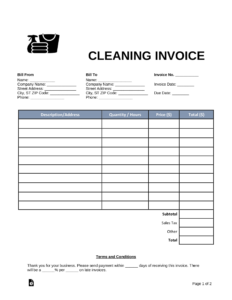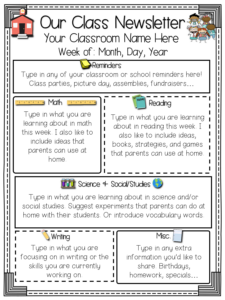Keeping track of medications can be a daunting task, especially for individuals with multiple prescriptions or complex medication regimens. Missing a dose or taking the wrong medication can have serious consequences on your health and well-being. That’s where a medication calendar comes in handy. In this article, we will delve into the importance of a medication calendar and provide you with a step-by-step guide on how to create and effectively use one.
Why is a Medication Calendar Important?
A medication calendar is a tool that helps individuals manage their medications effectively by providing a visual representation of their medication schedule. It serves as a reminder to take medications on time, ensures adherence to prescribed dosages, and minimizes the risk of medication errors. Here are some key reasons why a medication calendar is crucial:
- Promotes medication adherence: Adhering to a medication regimen is essential for optimal health outcomes. A medication calendar serves as a daily reminder, making it easier to stay on track with your medications.
- Reduces the risk of medication errors: With multiple medications, it can be easy to confuse dosages, timings, or even the medications themselves. A medication calendar provides clarity and minimizes the chances of errors.
- Improves communication with healthcare providers: By having a medication calendar, you can easily share accurate information about your medication regimen with your healthcare providers, enabling them to make informed decisions about your treatment.
- Identifies potential drug interactions: Medication calendars can help identify potential drug interactions by visualizing the combinations of medications taken at specific times. This allows you and your healthcare provider to make necessary adjustments to your regimen.
How to Create a Medication Calendar
Creating a medication calendar is a straightforward process that requires some initial effort but pays off in the long run. Follow these steps to create your own medication calendar:
Step 1: Gather Information
Start by collecting all the necessary information about your medications. This includes the names of the medications, dosages, frequencies, and any special instructions provided by your healthcare provider. It’s important to have accurate and up-to-date information before proceeding to the next step.
Step 2: Choose a Format
Next, decide on the format for your medication calendar. You can choose between a physical paper calendar, a digital calendar on your smartphone or computer, or even a medication reminder app specifically designed for this purpose. Consider your personal preferences and convenience when making this decision.
Step 3: Create a Daily Schedule
Once you have chosen a format, create a daily schedule on your medication calendar. Divide the day into time slots based on your medication timings, such as morning, afternoon, evening, and bedtime. Be sure to include any specific instructions, such as taking medications with food or on an empty stomach.
Step 4: Fill in Medication Details
Now, fill in the medication details for each time slot on your calendar. Write down the name of the medication, dosage, and any additional instructions. Use different colors or symbols to differentiate between medications, making it easier to read and interpret the schedule.
Step 5: Set Up Reminders
If you are using a digital calendar or medication reminder app, set up reminders for each medication dose. This will ensure that you never miss a dose and stay consistent with your medication schedule. Choose reminders that are easily noticeable and align with your daily routine.
Tips for Using a Medication Calendar Effectively
While creating a medication calendar is a crucial step, using it effectively is equally important. Here are some tips to help you make the most out of your medication calendar:
- Keep it visible: Place your medication calendar in a prominent location where you can easily see it every day. This will serve as a constant reminder and help you stay organized.
- Update regularly: Make it a habit to update your medication calendar regularly, especially when there are changes in your medication regimen. This will ensure that you have the most accurate information at all times.
- Use alarms or timers: If you tend to forget to check your medication calendar, consider setting up alarms or timers to remind you about your medication schedule. This additional prompt can be helpful, particularly during busy or hectic days.
- Involve a caregiver or family member: If you have difficulty managing your medications independently, involve a trusted caregiver or family member. Share your medication calendar with them and ask for their assistance in reminding you about your medications.
- Review with your healthcare provider: During your regular appointments with your healthcare provider, bring along your medication calendar. Discuss any concerns or questions you may have and ensure that your medication regimen aligns with your current health condition.
Case Studies: The Impact of Medication Calendars
To understand the real-life impact of medication calendars, let’s take a look at two case studies:
Case Study 1: Managing Multiple Medications
John, a 65-year-old individual with multiple chronic conditions, was struggling to manage his medications effectively. He was often forgetting to take his medications on time, resulting in missed doses and inconsistent adherence. After creating a medication calendar and setting up reminders on his smartphone, John experienced a significant improvement in his medication adherence. The visual representation of his medication schedule made it easier for him to stay organized and remember his medications.
Case Study 2: Avoiding Medication Errors
Sarah, a 42-year-old working professional, was taking multiple medications for her diabetes and hypertension. Due to the complexity of her medication regimen, she had accidentally taken the wrong medication on a few occasions. After creating a medication calendar and color-coding her medications, Sarah was able to avoid further medication errors. The clear visual representation of her schedule helped her double-check before taking any medication.
Statistics on Medication Adherence
Medication adherence is a significant issue worldwide, leading to poor health outcomes and increased healthcare costs. Here are some eye-opening statistics related to medication adherence:
- In the United States, medication non-adherence results in approximately 125,000 deaths each year.
- Up to 50% of patients do not take their medications as prescribed.
- Non-adherence to medications costs the healthcare system billions of dollars annually.
- Patients with chronic illnesses have an average medication adherence rate of only 50%.
Conclusion
A medication calendar is a valuable tool for managing medications effectively and ensuring adherence to prescribed regimens. By creating a medication calendar and following the tips mentioned in this article, you can greatly reduce the risk of medication errors, improve medication adherence, and ultimately enhance your overall health outcomes. Remember, consistency and accuracy are key when it comes to managing your medications, and a medication calendar can help you achieve just that.
Frequently Asked Questions (FAQs)
Q1: Can I use a medication calendar for over-the-counter medications?
A1: Absolutely! A medication calendar can be used to manage both prescription and over-the-counter medications. It helps you keep track of all the medications you are taking and ensures that you follow the recommended dosages and timings.
Q2: Do I need to create a new medication calendar every month?
A2: It depends on your medication regimen. If there are no changes in your medications, you can simply reuse the same medication calendar each month. However, if there are any changes in your prescriptions or dosages, it’s important to update your calendar accordingly.
Q3: Can I share my medication calendar with my healthcare provider?
A3: Yes, sharing your medication calendar with your healthcare provider is highly recommended. It provides them with valuable insights into your medication regimen and helps them make informed decisions about your treatment. It also allows them to identify any potential drug interactions or concerns.
Q4: Is a medication calendar suitable for individuals with memory issues?
A4: Yes, a medication calendar can be particularly beneficial for individuals with memory issues. By providing a visual representation of the medication schedule, it serves as a constant reminder and reduces the chances of missed doses or medication errors. Additionally, involving a caregiver or family member can provide further support in managing medications.
Q5: Are there any medication reminder apps available?
A5: Yes, there are numerous medication reminder apps available for smartphones and tablets. These apps offer features such as customizable reminders, medication tracking, and even the ability to share your medication schedule with caregivers or healthcare providers. Some popular medication reminder apps include Medisafe, MyTherapy, and Mango Health.
Summary
A medication calendar is an essential tool for effectively managing medications and ensuring adherence to prescribed regimens. By creating a medication calendar, individuals can minimize the risk of medication errors, improve medication adherence, and enhance their overall health outcomes. It is crucial to gather accurate information about medications, choose a suitable format, createa daily schedule, fill in medication details, and set up reminders. Using a medication calendar effectively involves keeping it visible, updating it regularly, using alarms or timers, involving a caregiver or family member, and reviewing it with healthcare providers. Two case studies highlight the positive impact of medication calendars on medication management. Additionally, statistics on medication adherence emphasize the importance of using tools like medication calendars to improve health outcomes and reduce healthcare costs.
In conclusion, a medication calendar is a powerful tool that can significantly improve medication management and adherence. By following the steps outlined in this article and implementing the tips provided, individuals can reduce the risk of medication errors, stay organized, and enhance their overall health outcomes. Whether using a physical calendar, a digital calendar, or a medication reminder app, the key is to find a method that works best for you and ensures that you never miss a dose or take the wrong medication.
Remember, medication adherence is crucial for maintaining your health and well-being. By taking control of your medication regimen with the help of a medication calendar, you can achieve better health outcomes and lead a more fulfilling life.
Frequently Asked Questions (FAQs)
Q1: Can I use a medication calendar for over-the-counter medications?
A1: Absolutely! A medication calendar can be used to manage both prescription and over-the-counter medications. It helps you keep track of all the medications you are taking and ensures that you follow the recommended dosages and timings.
Q2: Do I need to create a new medication calendar every month?
A2: It depends on your medication regimen. If there are no changes in your medications, you can simply reuse the same medication calendar each month. However, if there are any changes in your prescriptions or dosages, it’s important to update your calendar accordingly.
Q3: Can I share my medication calendar with my healthcare provider?
A3: Yes, sharing your medication calendar with your healthcare provider is highly recommended. It provides them with valuable insights into your medication regimen and helps them make informed decisions about your treatment. It also allows them to identify any potential drug interactions or concerns.
Q4: Is a medication calendar suitable for individuals with memory issues?
A4: Yes, a medication calendar can be particularly beneficial for individuals with memory issues. By providing a visual representation of the medication schedule, it serves as a constant reminder and reduces the chances of missed doses or medication errors. Additionally, involving a caregiver or family member can provide further support in managing medications.
Q5: Are there any medication reminder apps available?
A5: Yes, there are numerous medication reminder apps available for smartphones and tablets. These apps offer features such as customizable reminders, medication tracking, and even the ability to share your medication schedule with caregivers or healthcare providers. Some popular medication reminder apps include Medisafe, MyTherapy, and Mango Health.
In summary, a medication calendar is a valuable tool for managing medications effectively and ensuring adherence to prescribed regimens. By creating a medication calendar and following the tips mentioned in this article, you can greatly reduce the risk of medication errors, improve medication adherence, and ultimately enhance your overall health outcomes. Remember, consistency and accuracy are key when it comes to managing your medications, and a medication calendar can help you achieve just that.





